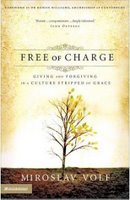A short new series
 Because your steadfast love is better than life, my lips will praise you.
Because your steadfast love is better than life, my lips will praise you.
Psalm 63.3
Death is a Bad Thing. Death is the
last enemy. It is not a comfort, a friend, a doorway to the world beyond, the river Styx before Hades or even the
river Jordan on the threshold of the promised land.
However, it is an enemy that stands already defeated. The final silence of irrevocable parting has been broken by Easter laughter. For those who hope in the resurrected one, death has become sleep, with the secure promise of awakening at his return. This means that though its hostility is not diminished, there is no need for
fear or despair in facing it daily (as we all do, to greater and lesser extents of consciousness and proximity).
Although we
rage against the often pointless tragedy of death (particularly many deaths), and mourn all loss of life, it is nonetheless possible for this 'rage' to be expressed through a defiantly peaceful confidence as well as tears and anger.
Christian A put it well in his
comment on an earlier post where he pointed to the example of Simeon in the infancy narrative that so many of us have recently read:
"Lord, now you are letting your servant depart in peace, according to your word; for my eyes have seen your salvation.” (Luke 2:29-30)
Is it possible to “depart in peace” in a way that still shows the kind of disgust for death that Jesus showed outside Lazarus’s tomb? Perhaps we should rail against death not with despair but with assured anticipation.
In the light of the visible arrival of God's salvation in this little child, Simeon's imminent departure is now filled with hope. This salvation is not
from death, as if he can now avoid walking this dark path altogether, but will be salvation
from out of death - new life on the far side of sleep.
Thus, because God's salvation has begun in Christ (though is
not yet complete), death takes its place as a
secondary foe of humanity. While death will be the last enemy to finally submit to Christ's rule (1 Cor 15.26), it is not the Great Enemy, the Adversary.
There are things worse than death.
Series: I, II, III, IV, V, VI.
Fifteen points for correctly naming these pre-historic standing stones.














